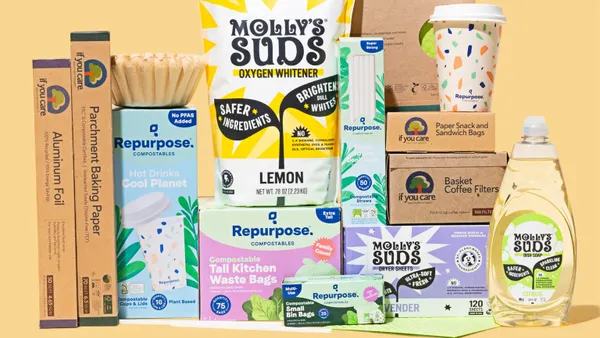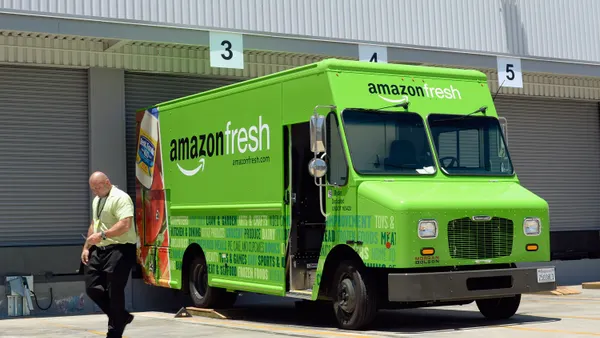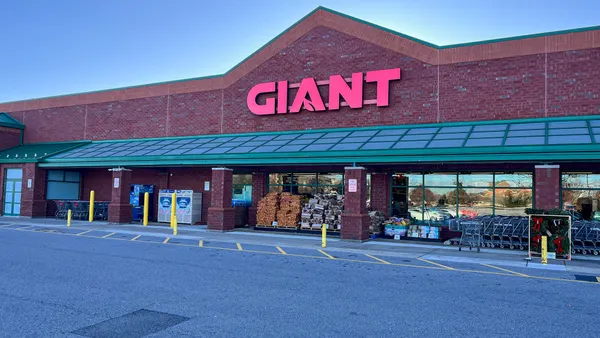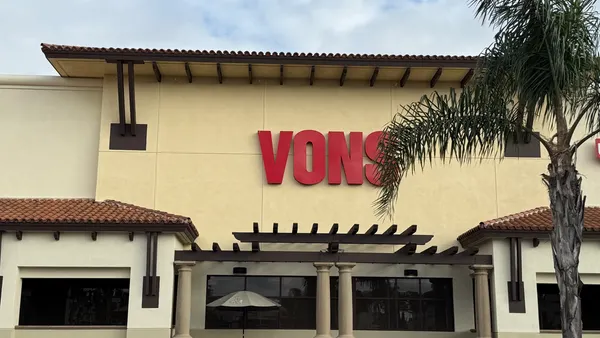Dive Brief:
- Dollar volume from mass retailer private label brands climbed 41% over the past five years while national brands only increased by 7.4%, according to a report from the Private Label Manufacturers Association that analyzed Nielsen data. Store brand unit sales at mass retailers surged by 33.2%, while national brand unit sales grew less than 1%. The mass retail sector includes club retailers, mass merchandisers and dollar stores.
- As a result, retail private label brands have gained considerable market share at mass retailers in the past five years, the report says. Overall store brand unit market share grew to 23.2% in 2018, from 18.5% in 2013, and dollar market share increased to 19.3% in 2018 from 15.5% in 2013. Last year alone, sales of private labels got a 9.8% boost, while national brands remained flat.
- The report also found that the mass retail channel is growing faster than traditional supermarkets, with total sales in the mass channel reaching $314 billion versus $330 billion in supermarkets over the past five years.
Dive Insight:
The preference for private label products continues to pick up pace and isn’t expected to slow down anytime soon, giving national brands a run for their money. Costco’s Kirkland Signature brand — a giant in the sector — raked in $39 billion in 2018. In an interview with CNBC, American billionaire and business investor Warren Buffett said that sales figure dwarfed those of Kraft-Heinz, which generated $26 billion last year.
Mass retailers are carrying most of the weight in private label growth as supermarkets and drug stores fall behind. The data from Nielsen isn't the first to identify supermarkets' struggles. According to a report from research firm IRI released late last year, private label basket sizes for club stores were up 3.9% and mass retailers was up 2.9% in 2018, while supermarket private label unit sales were negative.
IRI stated at the time that grocers' store brands may not be connecting with consumers' desire for premium and value-priced offerings. With their low-price positioning and bulk sizing, mass retailers have always had a strong hold on value. Now, retailers like Target and BJ's are building baskets with more national-brand equivalent products, including many organic ones.
Among mass merchandisers, Target has been doubling down on its private label grocery game with the release of an expanded wine collection, fair trade certification on its Archer Farms coffee and a new wallet-friendly, green household brand line Everspring, which was unveiled yesterday. All this has helped Target reach its highest traffic and sales in more than a decade.
Costco’s Kirkland Signature brand leads the pack for club retailers, with the growth of its private label brand sales outpacing the club store's sales as a whole in 2018. Its main competitor, Sam’s Club, merged its private label lines three years ago into Member’s Mark, which now makes up 27% of Sam's Club sales. BJ’s has also heavily invested in its store brands. The wholesale club has unveiled individual websites to showcase its private label brands and make it easier for customers to shop, and also recently added five new private label wines.
Still, supermarket private label lines have come a long way in the past few years, rebranding themselves from discount products to high-quality and national brand equivalents. In February, Raley’s relaunched its private label brand with fresh packaging and more transparent labeling. ShopRite has embarked on a five-year plan to upgrade its store brands to include more premium products. Other retailers including Hy-Vee, SpartanNash, Kroger and Albertsons have also revamped their private label portfolio in recent months.











